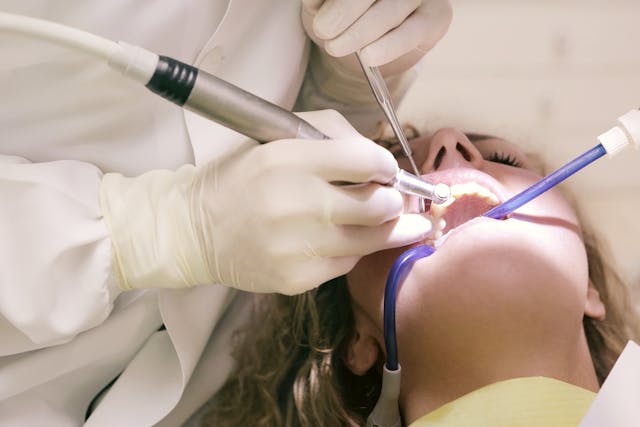A bright, white smile is usually associated with confidence and an excellent oral health. Consequently, teeth whitening has become increasingly popular. However, with many options available, from home kits to professional services, it’s easy to be overwhelmed. For those considering Teeth whitening Manchester, navigating through the myths and facts is essential. Is whitening harmful to your teeth? Will it make your teeth too sensitive? With the abundance of misinformation, it’s essential to separate fact from fiction. This article’ll debunk four common myths about teeth whitening treatments to help you make informed decisions about achieving that brighter smile. Let’s clear up the confusion and get the facts straight about the safety, efficacy, and proper use of whitening products.
Teeth Whitening Damages Your Enamel
 One of the most common myths is that teeth whitening erodes or damages the enamel. This concern stems from the belief that whitening agents contain harsh chemicals that strip away the tooth’s outer layer. In reality, reputable whitening products are designed to be safe for enamel. Most professional whitening treatments use carbamide or hydrogen peroxide to break down stains on your tooth surface. These agents penetrate the enamel without altering its structure.
One of the most common myths is that teeth whitening erodes or damages the enamel. This concern stems from the belief that whitening agents contain harsh chemicals that strip away the tooth’s outer layer. In reality, reputable whitening products are designed to be safe for enamel. Most professional whitening treatments use carbamide or hydrogen peroxide to break down stains on your tooth surface. These agents penetrate the enamel without altering its structure.
When used correctly under professional guidance, teeth whitening does not harm the enamel. It’s always advisable, however, to consult with the dentist before starting any whitening treatment to ensure it’s suitable for your dental health.
Whitening Results Last Forever
 Many people believe that once they whiten teeth, they will remain sparkling white permanently. However, this is different. The longevity of whitening results depends on several factors, including diet, oral hygiene habits, and lifestyle choices. Consuming staining substances like coffee, red wine, tea, and tobacco can cause discoloration over time, even after a whitening treatment. To maintain a bright smile, periodic touch-ups with whitening trays or professional treatments are recommended.
Many people believe that once they whiten teeth, they will remain sparkling white permanently. However, this is different. The longevity of whitening results depends on several factors, including diet, oral hygiene habits, and lifestyle choices. Consuming staining substances like coffee, red wine, tea, and tobacco can cause discoloration over time, even after a whitening treatment. To maintain a bright smile, periodic touch-ups with whitening trays or professional treatments are recommended.
Whitening Toothpaste Works Just as Well as Professional Treatments
Whitening toothpaste is often marketed as a convenient, over-the-counter alternative to professional whitening. While they may help remove surface stains, whitening toothpaste cannot penetrate deeper stains beneath the enamel. Professional whitening treatments, whether in-office or through custom at-home trays, use more potent agents to target these deeper stains and deliver more noticeable, long-lasting results. Whitening toothpaste is best used as a maintenance tool to prevent new stains, not as a primary whitening solution.

Teeth Whitening Causes Extreme Sensitivity
Another misconception is that teeth whitening inevitably leads to painful sensitivity. While some individuals may experience mild sensitivity during or after whitening, this is typically temporary and manageable. Professional treatments and quality at-home whitening kits are formulated to minimize discomfort. Your dentist can also recommend desensitizing products to use before and after treatment if sensitivity is a concern. The key is to follow your dentist’s instructions and avoid overuse of whitening products to prevent excessive sensitivity.
Teeth whitening is an effective and safe way to enhance your smile, provided it’s done correctly and with the right products. Myths about enamel damage, permanent results, the effectiveness of whitening toothpaste, and extreme sensitivity often discourage people from exploring whitening options. By understanding the facts and consulting with a dental professional, you can achieve and maintain a brighter smile without falling for these common misconceptions. Don’t let myths keep you from feeling confident about your teeth—know the truth and smile brighter!
